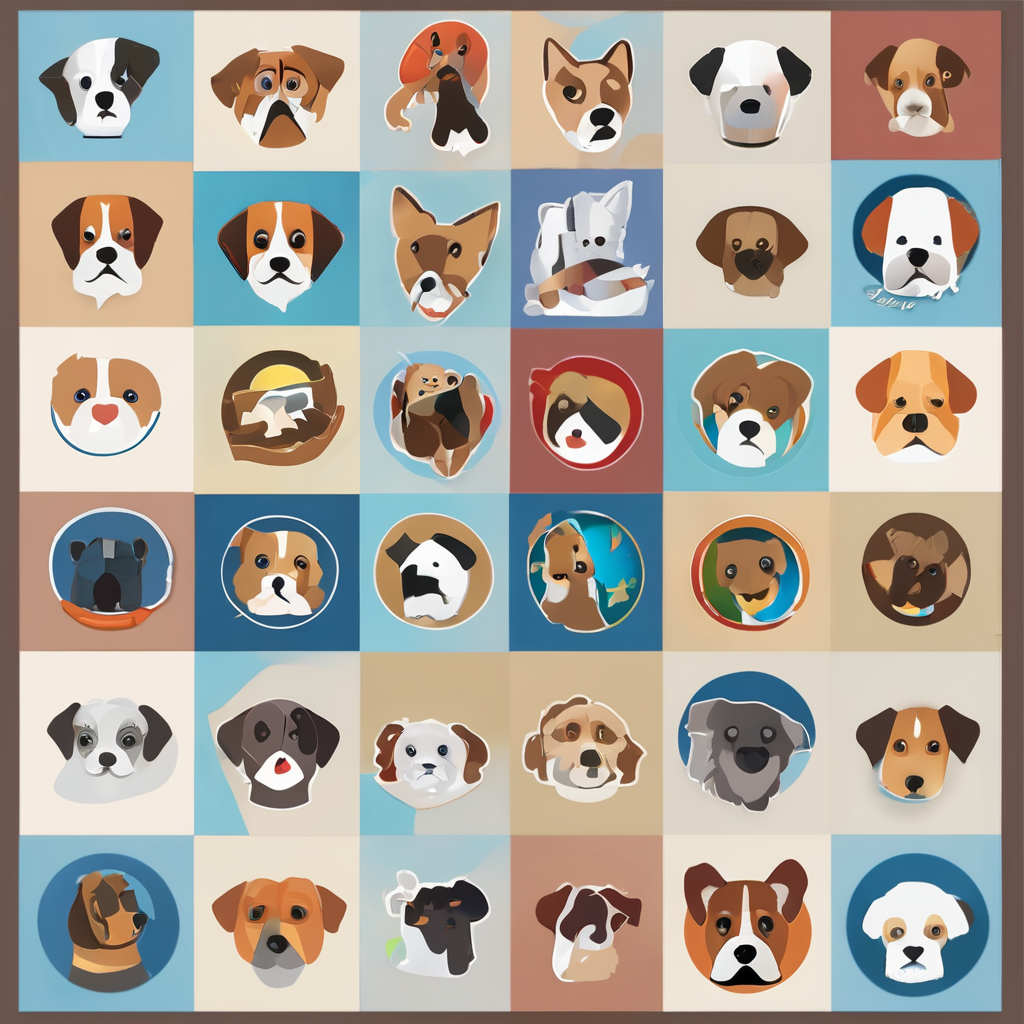Vital Strategies for Safeguarding Your Senior Dachshund’s Dental Health: A Guide to Preventing Periodontal Disease
Understanding the Importance of Dental Health in Senior Dachshunds
As your dachshund ages, their dental health becomes increasingly crucial for their overall well-being. Senior dogs, particularly those with unique physical characteristics like dachshunds, are more prone to dental issues due to their crowded teeth and genetic predispositions. Periodontal disease, a common and serious condition, can significantly impact your dog’s quality of life if not addressed promptly.
“Des dents en pleine santé permettent au chien de mener une vie épanouie au quotidien en s’adonnant à certaines de ses activités préférées : jouer et manger !” This quote from Jardiland highlights the critical role dental health plays in your dog’s daily life[2].
This might interest you : What are the key benefits of spaying or neutering my dog, and when is the best time to do so?
Recognizing the Symptoms of Periodontal Disease
Periodontal disease often manifests with subtle symptoms that can escalate into severe health issues if ignored. Here are some common signs to watch out for:
Symptoms of Periodontal Disease
- Bad Breath: One of the earliest and most noticeable signs of dental problems in dogs.
- Red or Swollen Gums: Inflammation of the gums (gingivitis) is a clear indicator of periodontal disease.
- Difficulty Eating: As the disease progresses, your dog may show signs of pain or discomfort while eating.
- Loose Teeth: Advanced periodontal disease can lead to teeth becoming loose or falling out.
- Bleeding Gums: Slight bleeding from the gums, especially during eating or brushing, is another warning sign.
“Les premiers symptômes de cette maladie sont la mauvaise haleine et un saignement au niveau des gencives. Le chien éprouve également des difficultés pour se nourrir,” explains Jardiland, emphasizing the importance of early detection[2].
Also to read : Essential techniques for successfully socializing your tibetan terrier in vibrant urban settings
Effective Dental Care Strategies
Maintaining your senior dachshund’s dental health requires a multi-faceted approach that includes regular care, dietary adjustments, and veterinary check-ups.
Daily Tooth Brushing
Brushing your dog’s teeth is as essential as brushing your own. Here’s how to do it effectively:
- Use Pet-Specific Toothpaste: Human toothpaste is not safe for dogs, so make sure to use toothpaste specifically designed for canine dental care.
- Choose the Right Brush: Opt for a dog toothbrush or a finger brush that fits comfortably in your dog’s mouth.
- Start Early: Begin brushing your dog’s teeth from an early age to make it a routine they are comfortable with.
- Frequency: Aim to brush your dog’s teeth daily, if possible, to prevent plaque and tartar buildup.
“Plus vous commencerez tôt ces séances de brossage, plus votre animal s’y habituera rapidement et se laissera faire sans difficulté,” advises Jardiland[2].
Nutritional Support
The right diet can significantly contribute to your dog’s dental health.
Types of Food
- Dry Food (Croquettes): Dry food helps reduce plaque and tartar by stimulating saliva production during mastication. “Les croquettes aident, en outre, à retarder l’apparition de la plaque dentaire et du tartre chez le chien,” notes Santévet[4].
- Dental Chews and Treats: Products like Pedigree Dentastix™ and Purina Pro Plan Veterinary Diets Dental Chewz are designed to reduce tartar and plaque. These chews also satisfy the natural urge to chew and can be a rewarding treat for your dog[2][3].
Additional Nutritional Elements
- Probiotics and Postbiotics: These can improve oral microbiota and reduce tartar buildup.
- Cranberries: Containing polyphenols, cranberries help prevent bacterial adhesion.
- Brown Seaweed (Ascophyllum Nodosum): Clinically shown to reduce tartar buildup[1].
Water Additives and Powders
For dogs that are not fond of brushing or need additional support, water additives and powders can be highly effective.
Proden PlaqueOff Powder
- Made from organic kelp, this powder breaks down biofilm on teeth and softens tartar and plaque buildup.
- Easy to mix with your dog’s food, it shows results in three to eight weeks[3].
Regular Veterinary Check-Ups
Regular visits to your veterinarian are crucial for maintaining your senior dachshund’s dental health.
Why Regular Check-Ups Are Essential
- Early Detection: Your vet can detect early signs of periodontal disease that you might miss.
- Professional Cleaning: Regular dental cleanings by a veterinarian can remove tartar and plaque that brushing alone cannot.
- Customized Advice: Your vet can provide personalized advice based on your dog’s specific needs and health conditions.
“By addressing potential health issues early, providing a balanced, nutrient-rich diet, and ensuring regular veterinary visits, owners can enhance their Dachshund’s quality of life and longevity,” emphasizes Bonza[1].
Additional Tips for Senior Dachshunds
As your dachshund ages, their dental health needs may change. Here are some additional tips to keep in mind:
Avoid Hard Objects
Prevent your dog from chewing on hard objects like antlers or bones, which can cause injuries and lead to tooth infections[5].
Monitor for Other Health Issues
Senior dogs are more prone to various health issues that can be interconnected with dental health. For example, diabetes, obesity, and heart conditions can all impact your dog’s overall health and dental well-being.
Consider Pet Insurance
Pet insurance can help cover the costs of dental care and other health issues that may arise as your dog ages. “L’assurance santé animale SantéVet rembourse le traitement du diabète chez le chien et le chat,” notes Santévet, highlighting the importance of financial preparedness[4].
Comparative Table: Dental Care Products for Dogs
Here is a comparative table of some popular dental care products for dogs:
| Product | Type | Key Benefits | Potential Drawbacks |
|---|---|---|---|
| Pedigree Dentastix™ | Dental Chews | Reduces plaque and tartar, satisfies natural urge to chew | May cause digestive issues in some dogs |
| Purina Pro Plan Veterinary Diets Dental Chewz | Rawhide-Type Chews | High in protein, low in fat, VOHC Seal of Approval | Can be pricey, may cause digestive issues |
| Proden PlaqueOff Powder | Powder | Breaks down biofilm, softens tartar and plaque, easy to mix with food | Some dogs may experience initial digestive issues |
| OraVet Dental Chews | Dental Chews | Combats plaque, tartar, and bacteria, VOHC approved | May not be universally liked by dogs |
Maintaining your senior dachshund’s dental health is a multifaceted task that requires regular care, a balanced diet, and regular veterinary check-ups. By understanding the symptoms of periodontal disease, implementing effective dental care strategies, and staying vigilant about other health issues, you can significantly enhance your dog’s quality of life.
“Helping fight tartar and plaque can significantly lessen the likelihood that your dog will develop dental disease and tooth root abscesses,” advises Dogster, emphasizing the proactive approach needed to safeguard your dog’s health[5].
By following these strategies and staying informed, you can help your senior dachshund enjoy a healthy, happy life, free from the pain and discomfort of periodontal disease. Remember, every small step you take towards your dog’s dental health is a step towards ensuring they live their best life.















